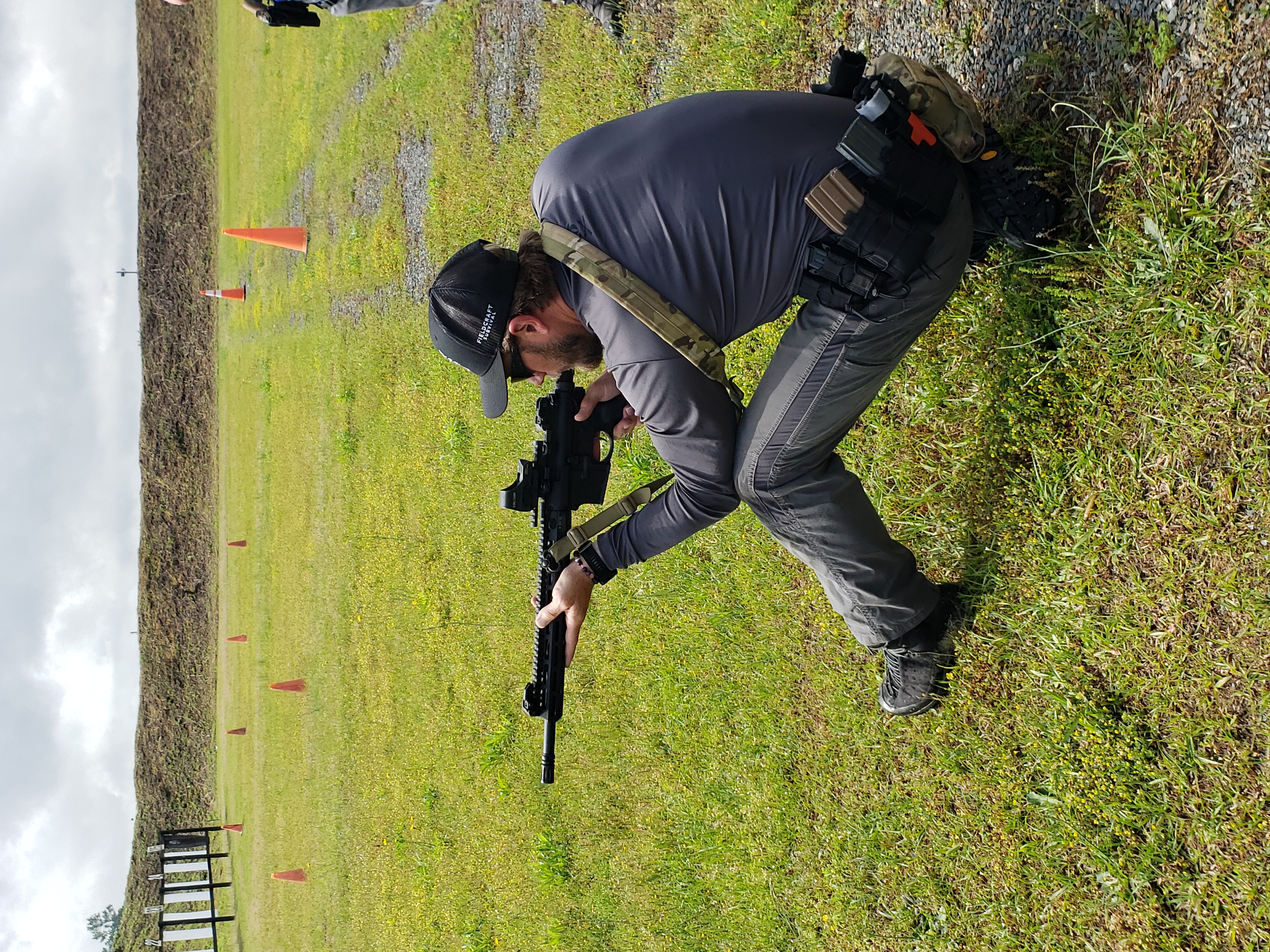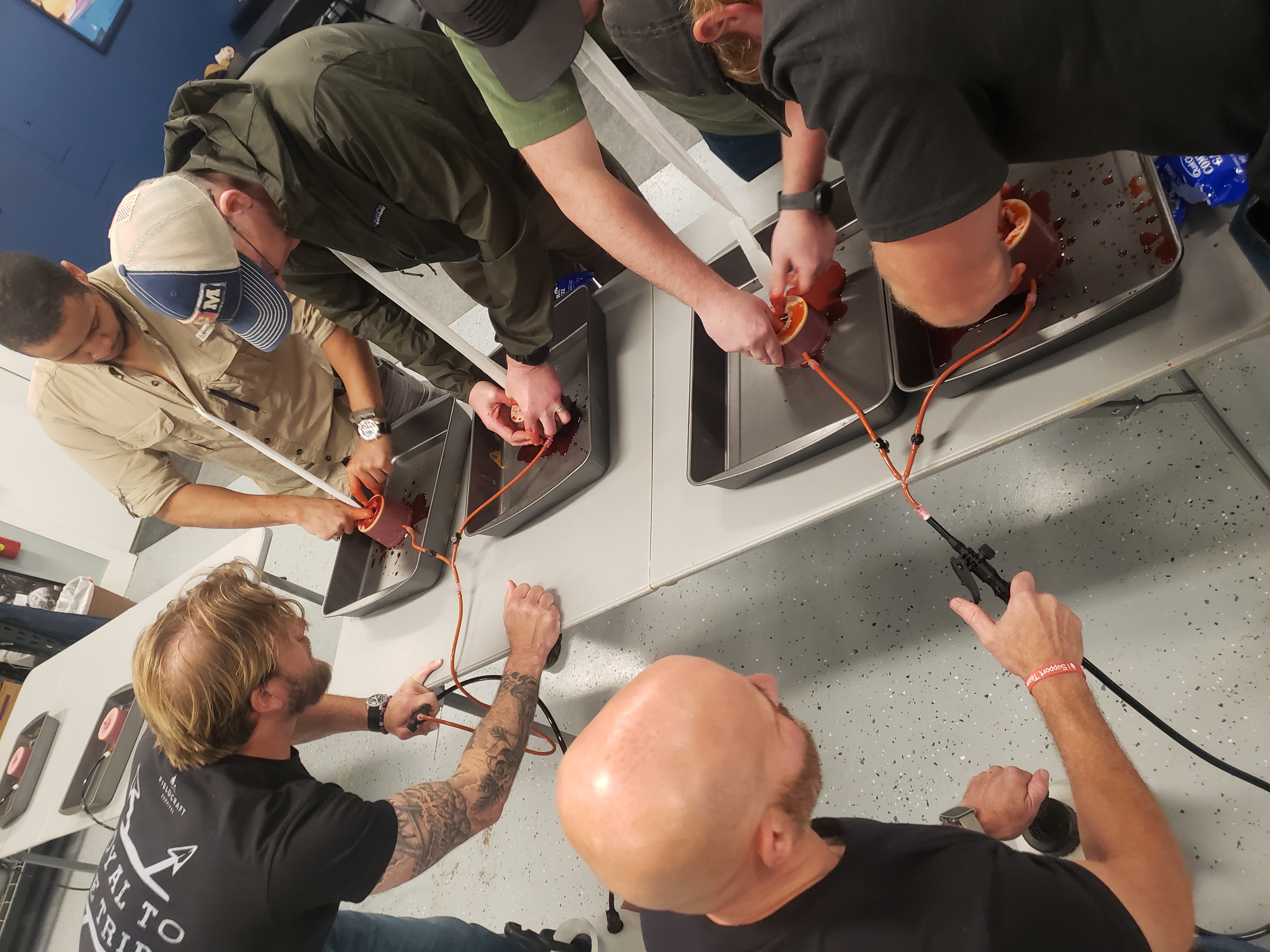
“We’re going to compress the best information from 6 classes over three days of instruction.” Imagine hearing that if you’re a person with limited time to train. Training requires an investment of your time and that is a resource we all don’t have enough of. Personally, I’m a training junkie. From martial arts, to shooting sports, to outdoor skills, I love learning from professional instructors but the obligations of life often get in the way when seminars aren’t scheduled around my calendar. At Fieldcraft, we wanted to experiment with offering a course that brought the best from personal security, emergency medical treatment, austere medicine, defensive pistol, defensive carbine, and concealed carry pistol under one blanket course. Here are some of the lessons learned from the instructor and student points of view.
“There are Always 3 in a Fight”
An expression I first learned from my friend (and former podcast guest) Dan Luna is, “there are always 3 in a fight; you, your opponent, and the environment.” In other words, you always have to consider where you are in conflict and what the atmospherics will be. During our skills weekend, we experienced warm temps with plenty of sunlight causing sunburn on some of our students, high heat which required plenty of fluids and rehydration drinks, and one day of extreme wet weather with thunderstorms, wind, and rain. By knowing your environment, you know how to pack appropriate gear to address it. LMNT drink mix was consumed heavily by the instructor cadre during day 2 when no shade was available and humidity levels were high. Improper hydration caused many to move slowly and impact how long we could train. Day 3 was cooler with plenty of torrential rain. Full rain kit is a must when rain is a real threat. Rain pants help direct rain away from boot openings and good boots and socks keep you moving through puddles.
Stress Inoculation Matters

Abraham Maslow was a psychologist who created a hierarchy of needs. In a perfect setting, students show up well fed, rested, and relaxed. When the conditions are right, learning is easy as students have nothing to worry about other than absorbing what is being taught. During the Skills Weekend, we wanted students to get the greatest training value. Despite providing lunch each day and breaking each day with enough time for students to rest up, stress became a factor as instructors used Pro Shot Timers, solo-student demonstrations, and spontaneous challenges to ramp up the difficulty of training. Skills Weekend is about developing correct solutions to problems and to pressure test what is learned, scenarios and performance assessments are used to give realistic expectations of what the students are capable of. Let’s face it, it is easy to inflate your expectations of capability in comfort. Training through discomfort is where the growth occurs. Next time you’re in a course, pay attention to what is taught and who is teaching. Even instructors can fall prey to teaching what they are most comfortable with and shy away from what they know they need to work on.
Good Reps Build Good Habits
The students at skills weekend showed up with varying levels of proficiency in firearms and medical training. Despite plenty of experience, there were training scars to fix. Students loaded pistols lower than “work space” instead of tucking their elbows in and keeping their field of vision up. Others indexed pistol magazines in inconsistent ways instead of touching the base pad of the mag against the palm of the hand running the index finger along the mag body to minimize fumbling. Outside of reloads, some students showed up with the habit of returning to the holster immediately instead of getting another sight picture and scanning. Personally, this was a bad habit of mine until I made the conscious effort to address it and had great coaches present to point out my errors. By the end of the Skills Weekend, there was a noticeable difference in the way the students performed. During one medical block of instruction on Day 3, students addressed a simulated gunshot to my left thigh. I was assessed, had a tourniquet applied, lifted, and moved by the students efficiently. It’s our wish that scenario never has to play out in reality but we are confident they will have a better response if it does. They’ve already experienced it in training and they won’t have to experience it for the first time should the injury be real.
At the end of every course, instructors conduct an after action report. We want to hear from our students and know what resonated with them. Rick Lofton, Gerry Young, and I all agreed the students did well and we were happy with the format. There’s no doubt in our minds this course should be repeated again given the positive comments. We’re realists and we also took note of the constructive feedback. We will adjust our practices to meet the needs of our students. One constant we will not change is the concept of bringing you the best elements of many courses for the time strapped. It will be up to future students, much like the alumni of the first class, to practice good reps of the skills learned to make them habitual and second nature.
